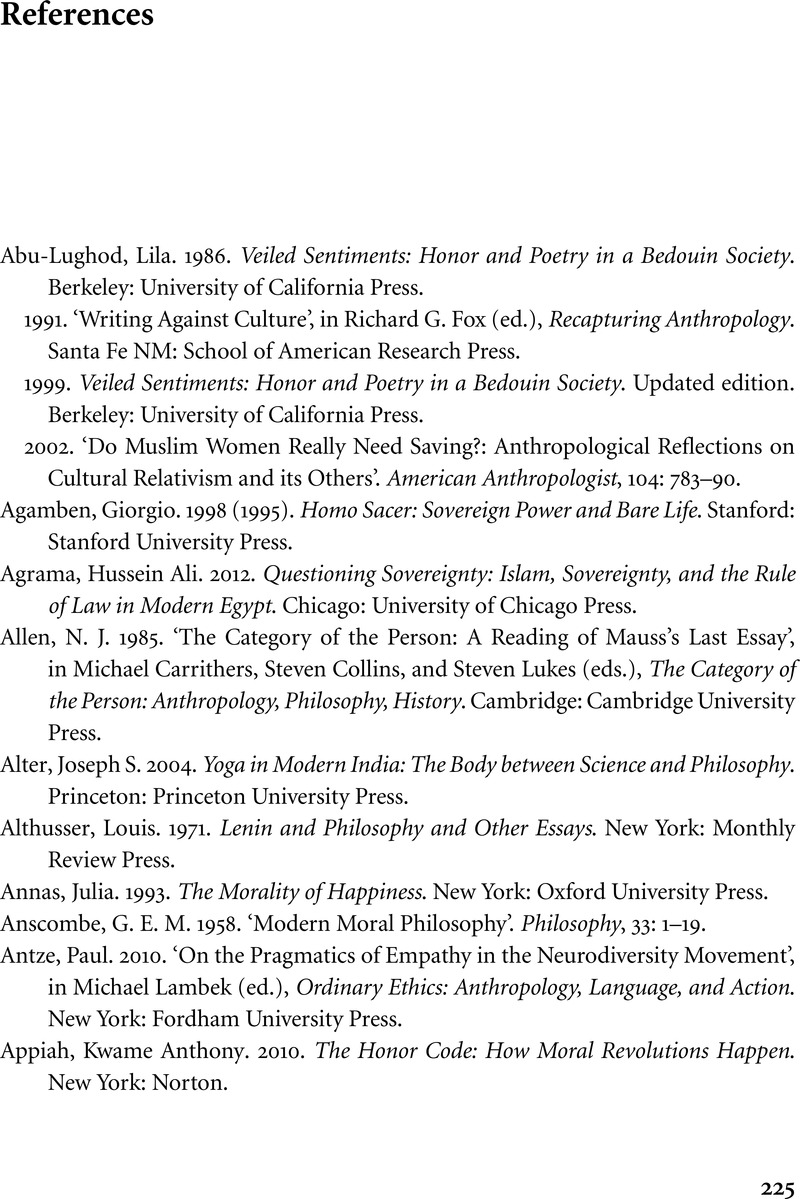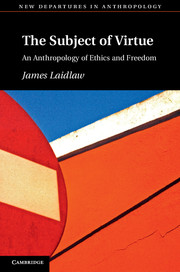Book contents
- Frontmatter
- Contents
- Acknowledgements
- 1 Beyond the science of unfreedom
- 2 Virtue ethics: Philosophy with an ethnographic stance?
- 3 Foucault's genealogy and the undefined work of freedom
- 4 The ‘question of freedom’ in anthropology
- 5 Taking responsibility seriously
- 6 The reluctant cannibal
- References
- Index
- References
References
Published online by Cambridge University Press: 05 June 2014
- Frontmatter
- Contents
- Acknowledgements
- 1 Beyond the science of unfreedom
- 2 Virtue ethics: Philosophy with an ethnographic stance?
- 3 Foucault's genealogy and the undefined work of freedom
- 4 The ‘question of freedom’ in anthropology
- 5 Taking responsibility seriously
- 6 The reluctant cannibal
- References
- Index
- References
Summary

- Type
- Chapter
- Information
- The Subject of VirtueAn Anthropology of Ethics and Freedom, pp. 225 - 253Publisher: Cambridge University PressPrint publication year: 2013



